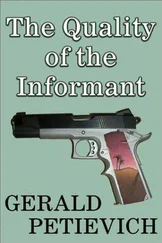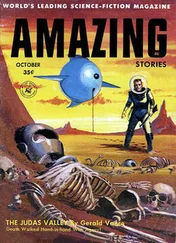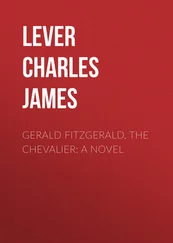I counted the rascal out his hundred gold pieces, and followed him to the stable.
‘I had her shoed only this morning,’ said he, holding high his lantern.
And what did I see? You have guessed. Cocotte, hook-nosed and supercilious as a camel, rolling her eyes at me in the dim yellow light.
There was nothing to be gained by argument: there was no time to lose, and I was growing weaker and weaker. Cursing the inn-keeper in my heart, I mounted, thinking: Filthy Cocotte! If I get off your back between this and Genappe, it will be to fall dead into the road. And, curse you, if you cannot take me there on four legs, by God you must carry me on three!
So, I rode again, still mounted on Cocotte. The rain was falling again, and now every drop of cold water on my sore head was like a blow with a hammer. Somewhere between my eyes, something was revolving like one of those children’s rattles composed of a springy strip of wood and a cogged wheel….
Brother, when you were a boy at school you learned the nature of the ancient Roman catapult? It was a system of stiff, springy beams mounted on a ponderous base. With ropes and winches the ancient artillerymen dragged down the topmost end of the upright beam until it was bent almost to breaking point. To this beam was fastened a cup. In this cup they played a great net bag filled with loose stones to the weight of about sixty pounds. The catapulter pulled a trigger. The agonised, bent beam snapped upright, struck the crossbeam with a horrible jolt, thus sending the bag of stones whirling away in a giddy parabola…. You remember? Believe me, I remembered! My spine was the strained upright, my shoulders were the crossbeam; my skull was the cup, my brains were the rattling stones; and every step Cocotte took pulled a trigger…. I was too wretched even to cry out, because when I cried my tongue vibrated, and I could not bear that.
Yet, agonised as I was, I continued to think, asking myself: Dumb, wounded beast that I am, how shall I pass the sentries? How shall I deliver my message to the Emperor?
I answered myself: How, but in writing? … I must write a series of messages on little pieces of paper; keep these messages in separate pockets of my waistcoat, and present them in their proper order.
I stopped again at a wretched farmhouse. Staying in the saddle – I should not have had the strength to remount – by the light of a lantern I wrote my notes, and put them into their respective pockets. After that, I bullied Cocotte back to the road, and so we struggled, splashing, on our way.
What was the name of that Greek who was doomed to push a great boulder up a steep hill for ever and for ever? I think his name was Sisyphus. I drink, comrade-in-arms, to Sisyphus; I think I know something of what he went through. It seemed to me – pain of bitten tongue and broken jaw apart – that I was condemned to ride eternally, through blinding rain and endless night, upon a lame mare, on a mission of honour, slipping back two paces for every pace that I covered. Soon I felt Cocotte weakening under me. Ah well, poor beast, she too had her troubles!
I remembered that my great cloak, sodden with the rain, must weigh heavy, so I unclasped it at the throat and let it fall behind me…. Everything was spinning, and spitting sparks. There were fireworks in my head, I tell you! Still, I remembered that it is the odd, superfluous pound of weight that tries you at the last mile … and I was carrying in my pockets something like thirty thousand livres in gold, and forty thousand in good paper. My friend, it was not entirely delirium that inspired me to put my hands in my pockets and scatter to the mud and the rain more gold than I had ever touched in my life. The tail-pockets of my coat were heavy with the stuff, after I had emptied the side and breast-pockets; these same coat-tails were slapping heavily against Cocotte’s belly. My mind was set now on my objective. I unbuttoned my coat, and let that fall, too, and felt lighter for the loss of it. Gold and banknotes were in that coat, and my pistols too…. I tore off my watch and chain, which also I tossed into the ditch. I would have kicked off my boots, only I dared not take my feet from the stirrups.
Now, then, I was riding in my shirt, trousers, and waistcoat; there was no more to jettison. All the time, notwithstanding, Cocotte went slower and slower.
At last – it was dawn, I think – to my infinite relief, I heard a hoarse voice cry: ‘ Qui va là? ’
I could not speak, of course, so I pulled out my first written message. It said:
I have intelligence of the utmost importance to the Emperor. Conduct me to him immediately.
Tessier,
Colonel, Artillery.
A mounted trooper took the paper, and handed it to another man. Seen through the curtain of the road, through my tired eyes, he looked like one of those terra-cotta soldiers on terra-cotta horses that we used to play with when we were children; he was so plastered with mud. But he spoke very civilly in the French of Paris, saying: ‘What is your message, Colonel Tessier?’
I felt myself fainting, fading away. I had done all that I could do. I tapped my right-hand waistcoat pocket. It seems, then, that I slid out of the saddle; because I know that I had a sensation of falling, as it were, down the side of a mountain, and uppermost in my mind was a dread of what I should feel when my cracked face hit the road.
The terra-cotta man caught me. I heard him cry: ‘Hold up there, sir!’
I became senseless, as much from horror as from pain and exhaustion.
He had cried out in English.
When I came to life again, I was lying on the floor in the kitchen of a farmhouse. My clothes had been stripped off, and I was wrapped in a dry cloak. They had put me by the fire, which was blazing bright. I saw, still dimly, a tight-faced officer in a blue uniform, sitting at a table between two pair of candles. Standing beside him and behind him were four other officers in blue. I recognised that tight face: it belonged to Collaert of the Allied cavalry.
Also, I saw my muddy waistcoat and trousers on a chair. Collaert was holding between a fastidious thumb and forefinger a little piece of paper which I knew. It was my second note. It said:
Sire! Your guide Lacoste is a spy. His name is de Wissembourg. He is in the pay of the Allies. He intends to misdirect you between Genappe and the plateau of Mont St Jean. Wellington will place his infantry there, behind a sunken road, which leads from Ohain to Braine le Leud. For God’s sake, make reconnaissance of this terrain, against which Wellington hopes you will send cavalry ….
Tessier,
Colonel (late), Artillery.
It was anguish of spirit that made me cry out at this, not pain of the body. Someone put something like a rolled-up greatcoat under my head, and the voice of the terra-cotta man murmured in English: ‘No shame in missing your way on a night like last night, in weather like this. Cheer up, monsieur; better luck next time!’ He was Captain Conconnel of Lord Wellington’s staff, but I did not learn that until later.
I made certain unmistakable motions with my fingers. The Englishman said: ‘He wants to write something.’
They gave me pencil and paper, and I wrote: Please give me a pistol and allow me to kill myself.
But they did not. Couriers were dispatched to Wellington with the intelligence which I had believed I had delivered to Napoleon. A doctor came to set my jaw, and later, locked in a bedroom, guarded by a grizzled old English trooper, I lay and listened to the rain on the shutters; and soon I heard the guns of Waterloo, and oh, but I wept bitterly! I had not the strength to lift my hand to wipe my eyes. The trooper came and wiped them for me: he had no handkerchief, so he offered me his cuff, saying: ‘Easy does it, mounseer – steady on, froggie. You’ll be a man before your mother yet….’ But he, also, was listening to the guns….
Читать дальше











